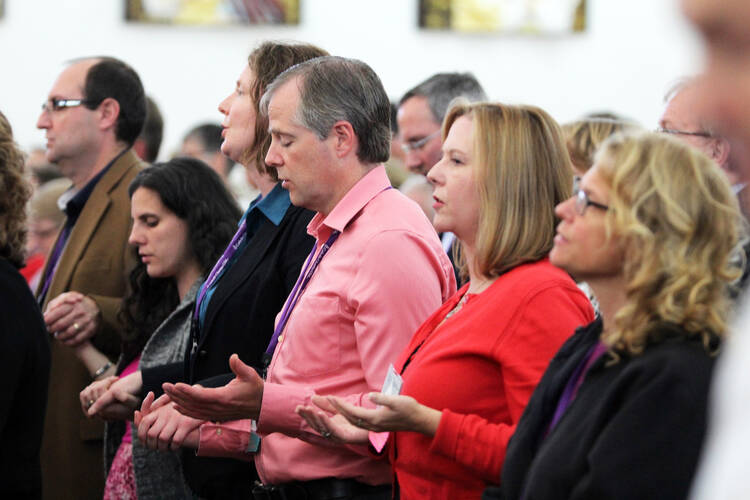The "instrumentum laboris," or working document for the coming October Synod on the Family, is a rather overwhelming wish list of pastoral outreach initiatives that the universal church hopes the local church will undertake more fully and better than before. To be sure, its subtitle and structure are more positive and forward looking than last year’s working document. The 2014 document dwelt upon the sufferings of the modern family. This year’s document leans somewhat more toward the theme of “family as agent,” in assisting themselves, other families and the world. Still, a cover-to-cover reading (147 paragraphs, preceded by Presentation and Introduction sections, and followed by a prayer) could easily “virtually” exhaust the would-be family minister.
Though media attention has, per usual, focused on the very few paragraphs concerning the divorced and remarried, the cohabiting and the same-sex oriented, the document devotes the lion’s share of attention elsewhere. On these hot-button topics, there is not a great deal of “news,” but rather what we heard repeatedly over the last year. On the first subject, the synod bishops report differences of opinion regarding whether to draw a bright line respecting receipt of the Eucharist, or to adopt one of several proposed paths toward inviting the divorced and remarried back into full Communion. On the matter of cohabitants, the document repeats that Catholics should affirm what they can find regarding a couple’s acceptance of the authentic goods of marriage, and urge them toward the full sacrament. On the matter of persons “with a homosexual tendency”—a subject treated in paragraph 131—there is a recommendation of “special attention” in “pastoral programs” to these persons and their families, alongside a reiteration of the church’s teachings on all persons’ equal dignity.
The remainder of the document takes up every large issue facing families, and most of the smaller ones as well. Particularly well done are its treatment of family scenarios involving the disabled, the elderly, the poor and the migrating. These are not the headline-grabbing portions of the document, or of church teaching, but they speak to the daily struggles, the darkest hours, and the heroic beauty of families struggling with any of these difficulties.
Two oft-repeated themes and wishes of the document are quite noble and beautiful, at the same time they awaken the pessimist in me. First is the vocation of the parish and diocesan communities to go out to the suffering, the unconvinced, and the partially convinced, with beautiful witness, plentiful time for “accompaniment,” and carefully chosen words harmonizing love and mercy and a call to repentance. Second is the need for better education and training for almost everyone—lay and clerical leaders, couples preparing for marriage, newly married couples and children. The desperate need for both of these is evident; but it’s been evident for decades. In a world where Catholics and non-Catholics alike are increasingly unconvinced that there is something uniquely special about the alliance between the man and the woman, and its natural invitation to children…in a world where people increasingly believe that sex and even marriage are “private” things…what will it take in a given parish or diocese to bring these wishes to life? Where will they find the words that can affirm the whole truth about marriage and family in a way that rightly reveals the poverty of all the partial truths swamping the culture (e.g. “love is enough”)?
Not surprisingly, in my view this type of work at the parish and diocesan level is sufficiently important to revolutionize parish and diocesan life. It gets at the core of what renders human beings free, secure and happy, and able even to glimpse the quality of God’s love. It is highly relevant to what is currently driving the gap between the rich and the poor. The working document appears to take the same view. The outstanding question then, remains how the results of the synod are received. Will the same urgency characterizing the past several years, propel significant additional, informed, sensitive and practical family outreach on the part of the local churches? Will pastors, seminary rectors, lay leaders, teachers and others be incentivized to prioritize such work? A few years’ time should tell.








